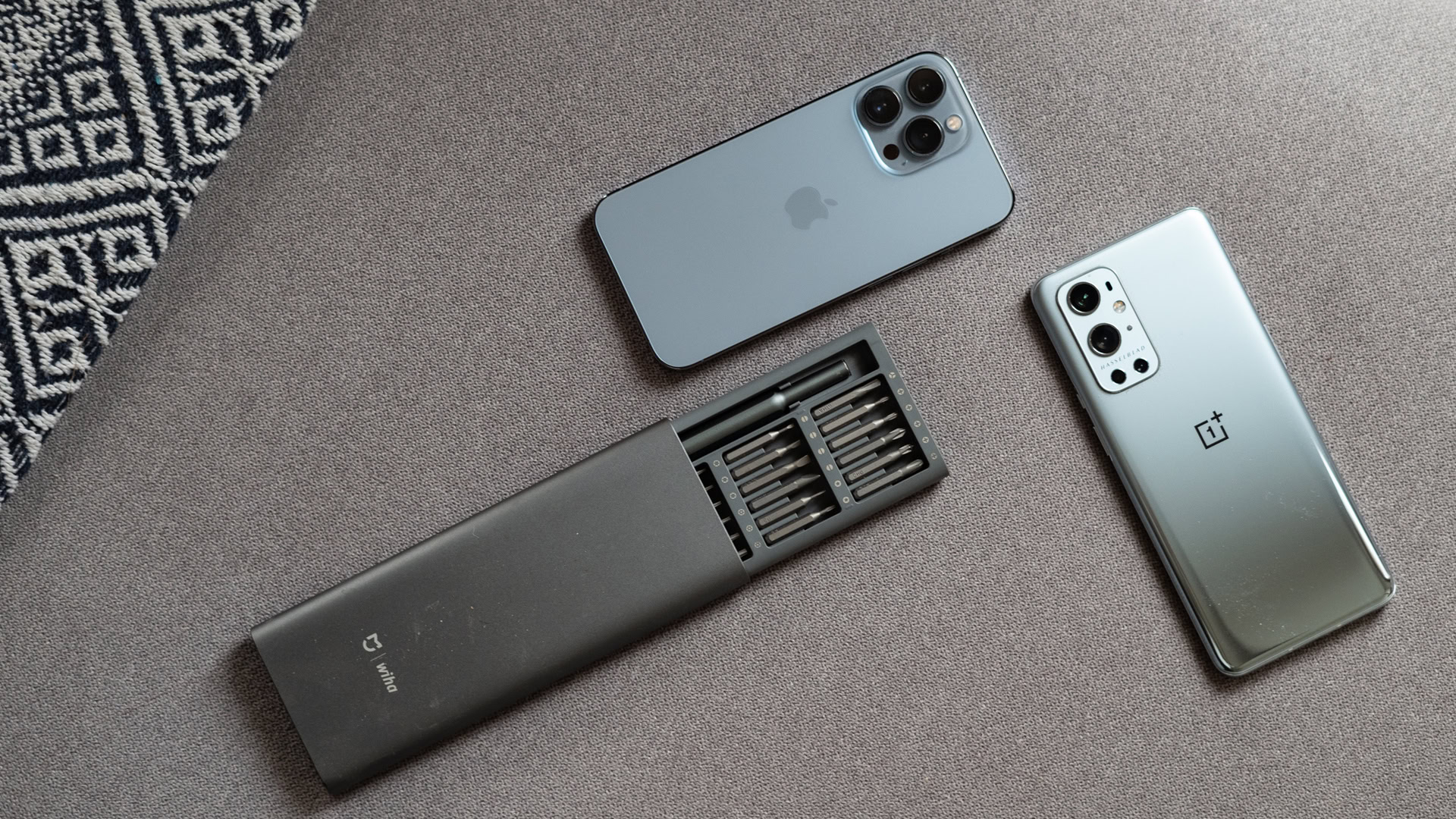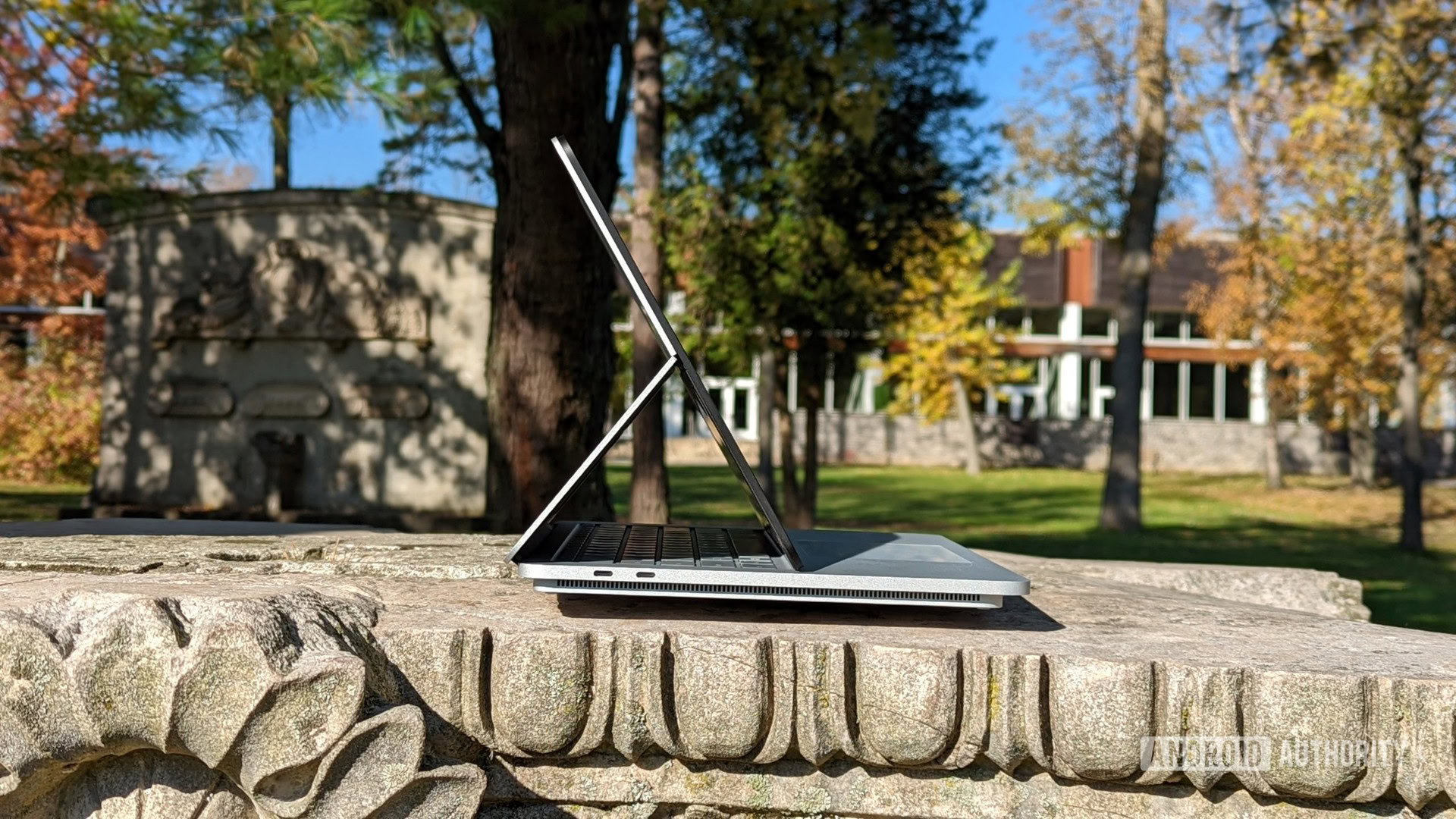Affiliate links on Android Authority may earn us a commission. Learn more.
Laptops don't need a foldable revolution, they're already foldable
Published onJanuary 12, 2022

CES 2022 brought us a ton of tech as usual. However, this year, computers took the spotlight more than anything else. Intel, AMD, and NVIDIA all had new CPUs and GPUs, and there were a ton of great new laptops. But what stuck out to me was the crazy and amazing ASUS Zenbook 17 Fold OLED — a foldable laptop — which even won our best laptop innovation award at CES 2022.
Now, I’m in awe of the innovative spirit, and I admire ASUS’ constant efforts to push the envelope with its offerings. Foldable phones have also been very interesting, but bringing the foldable revolution to laptops seems like trying to reinvent the wheel. Laptops are already foldable enough.
Fixing what ain’t broke

Laptops have traditionally been rather weak in comparison to desktops, but in the last few years, we have seen that change. Be it Intel and AMD‘s improved chips, or Apple’s M1 lineup of SoCs, laptops are packing in more and more punch. Higher resolutions, refresh rates, and color accuracies are also becoming the norm.
All in all, laptops are evolving to a state of near-perfection, which means they don't really need a revolution, and especially not a foldable one.
All in all, laptops are evolving to a state of near-perfection, which means they don’t really need a revolution, and especially not a foldable one. Don’t get me wrong, I think the large foldable laptops we have been seeing are impressive. Devices like the Lenovo ThinkPad X1 Fold and the ASUS Zenbook 17 Fold OLED are a good demonstration of what is possible, but the foldable revolution still feels like an impractical direction for laptops that’s parading as a practical one.
One of the biggest impractical points is the keyboard. While foldable laptops do provide an external keyboard, it’s cumbersome enough to carry. Even if you’re tucking one in the fold, it’s still a step back from the solid integrated keyboards in traditional laptops.
Not to forget, if you want to get rid of the keyboard entirely, touch keyboards still suck. They’re great for small devices, but in a laptop-sized device, they’re not as tactile or quick as physical keyboards — especially Microsoft’s built-in touch keyboard for Windows.
Also read: It’s Apple’s best laptop, but you probably don’t need the new MacBook Pro
A step back for reliability, affordability, and repairability

Foldable display technology is great as a concept, but it comes with a ton of caveats. Just look at folding phones. To begin with, there’s the issue of the crease, which is fine to look at but remains a weak point in the display that faces considerable stress due to opening and closing. ASUS says the hinge on the ZenBook 17 Fold OLED has been tested for 30,000 cycles. Comparatively, Samsung rates its mobile foldables’ durability at a more impressive 200,000 folds.
There have been quite a lot of reports about durability issues with folding phones, be it dust getting into the creases, displays cracking, or breaking in some other way. The cost of these devices is already high. ASUS hasn’t revealed the pricing of the 17 Fold, but we know it has to be steep. Lenovo’s Thinkpad X1 Fold had a starting price of $2,499, and the 17 Fold OLED is likely to follow that upward trend.
More broken devices also mean more e-waste.
The pricing is understandable, given the amount of R&D these devices need. However, that cost is being passed down to the customer. Durability is bound to drop and repair costs are bound to increase. Laptops generally have a longer lifespan than phones, but the foldable revolution could affect that negatively, or at least drive the repair costs up for folks that hold on to their devices longer. There are one-time screen replacement discounts from phone makers, but with bigger laptop-size displays, the cost is bound to be driven up. A replacement is unlikely to be offered for free there.
Not to forget, if you have one of these devices and are going to use it as intended, you’ll probably open and close it quite a lot. A large part of the appeal of these large foldable is the supersized portable display. That means a lot of 180-degree unfolding and folding if you’re using the device to its full capabilities. So durability is definitely a concern here.
Case in point: How much does it cost to replace a foldable phone’s screen?
Solving a problem that doesn’t really exist

Technically, laptops have always been foldable. Duh, right? It’s a bit of an obvious statement. These foldable computers are likely to result in one of two things — a) revolutionizing laptop design or b) kickstarting a new product category. The question is: Are these devices actually solving a real problem?
The way I see it, there’s not much that needs disruption here. With foldable phones, the appeal is that you can unfold them to have a tablet-like size. With foldable laptops, the benefit isn’t quite clear. They unfold into… a monitor? A desktop? It seems like a niche market if the aim is to have a portable desktop.
On the other hand, if the aim here is to save some space in your backpack, I’m not sure if the durability concerns are worth the tradeoff. Phones go into small pockets, tablets can’t. You’re gaining in portability by carrying a foldable phone. A laptop typically goes into a backpack, so is there really much to be achieved by making it smaller for the same backpack? More importantly, are there enough of us complaining about needing more space in our backpacks? Enough for this revolution to occur? My guess is no.
Relevant: We asked, you told us — Most of you are concerned about breaking foldable phones
Could foldable laptops work, regardless?

It will take a lot more R&D, lower costs, and better repairability for them to take off. Foldable phones are getting better, but there is still a long way to go before they hit mass affordability and adoption. For laptops, the road is bound to be even longer due to the size and complexity of components, plus the need to meet the existing expectations that traditional laptops currently do.
It can be done, but should it? Maybe not. Nothing wrong with bringing a little innovation to the table, but it seems like an unnecessary route to take. Laptops are simple and solid devices that have come to a point where they give us very little to worry about. A foldable revolution will change that for at least a good while, and I’m not sure the end-product will really be worth it.
Will you buy a foldable laptop?
There’s some chance that these larger devices will just stay as niche premium offerings. On the off chance that they become the norm, it will be an interesting future.